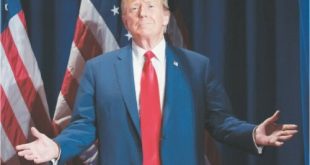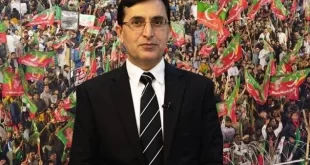IT is good optics, and the new tax measures imposed on the incomes of corporates and rich individuals will bring some consolation to the common man. In fact, the PML-N-led government has no choice but to drastically raise its tax income to finance its expenditure in the next financial year and to secure the revival of the suspended IMF funding if it is to avert a default on its foreign payments.
But just how effective will Prime Minister Shehbaz Sharif’s decision to increase taxes on the incomes of the already heavily taxed corporate sector be? And where does it stand in the overall picture of revenue generation?
The decision, announced yesterday, conveniently spares the PML-N’s core constituency — the traders — and stops far short of netting other untaxed or undertaxed segments of the economy, such as agriculture. Likewise, it also frees the PML-N and its coalition partners from the need to slash the wasteful expenditure on SOEs that have been haemorrhaging taxpayers’ money for years now. The disinvestment or closures of some loss-making public-sector entities actually might have saved more cash than the imposition of a one-time super tax on the FY22 profits of the documented sectors.
The new tax measures indicate that large companies in 13 specified sectors — covering banks, sugar, cement, LNG terminals, textiles, airlines, automobiles, steel, beverages, oil and gas, fertilisers, chemicals and tobacco — showing annual profits of above Rs300m during the outgoing fiscal, will be subject to an additional 10pc tax, and firms from other sectors to 4pc, over and above their regular corporate rates of 29pc (35pc for banks).
This will be in addition to the 1pc to 4pc poverty alleviation fund being levied on them and on high-net-worth individuals having a yearly income of above Rs150m.
No wonder, thestock market was rattled and plummeted by 4.8pc in the morning session before recovering somewhat in the afternoon.
It may not be possible for the government to broaden the tax net overnight, but it is disturbing to see it shy away from making a move in that direction. The implementation of a negligible fixed tax on retailers’ incomes or ‘rentals’ from real estate holdings of the rich aren’t enough.
The new measures will not produce much inflation even if some of the ‘affected’ sectors try to pass on the impact to consumers. Nor will it impact the pace of economic growth. However, it will significantly squeeze the profits of companies coming under the super tax and many of them are likely to hold their future investment plans and discourage documentation.
The steps taken by the government are reflective of the extremely sorry state of our economic affairs. We have reached a point where nobody is ready to trust us or hold our hand in difficult times. Short-term measures may help us avert immediate risks. But long-term survival will entail taking politically tough policy decisions.
 Pakish News We are an interactive media group that here a purpose to update users with the latest information. Our mission is to give you knowledge not only about your surroundings. We will also update you around the Globe.
Pakish News We are an interactive media group that here a purpose to update users with the latest information. Our mission is to give you knowledge not only about your surroundings. We will also update you around the Globe.



